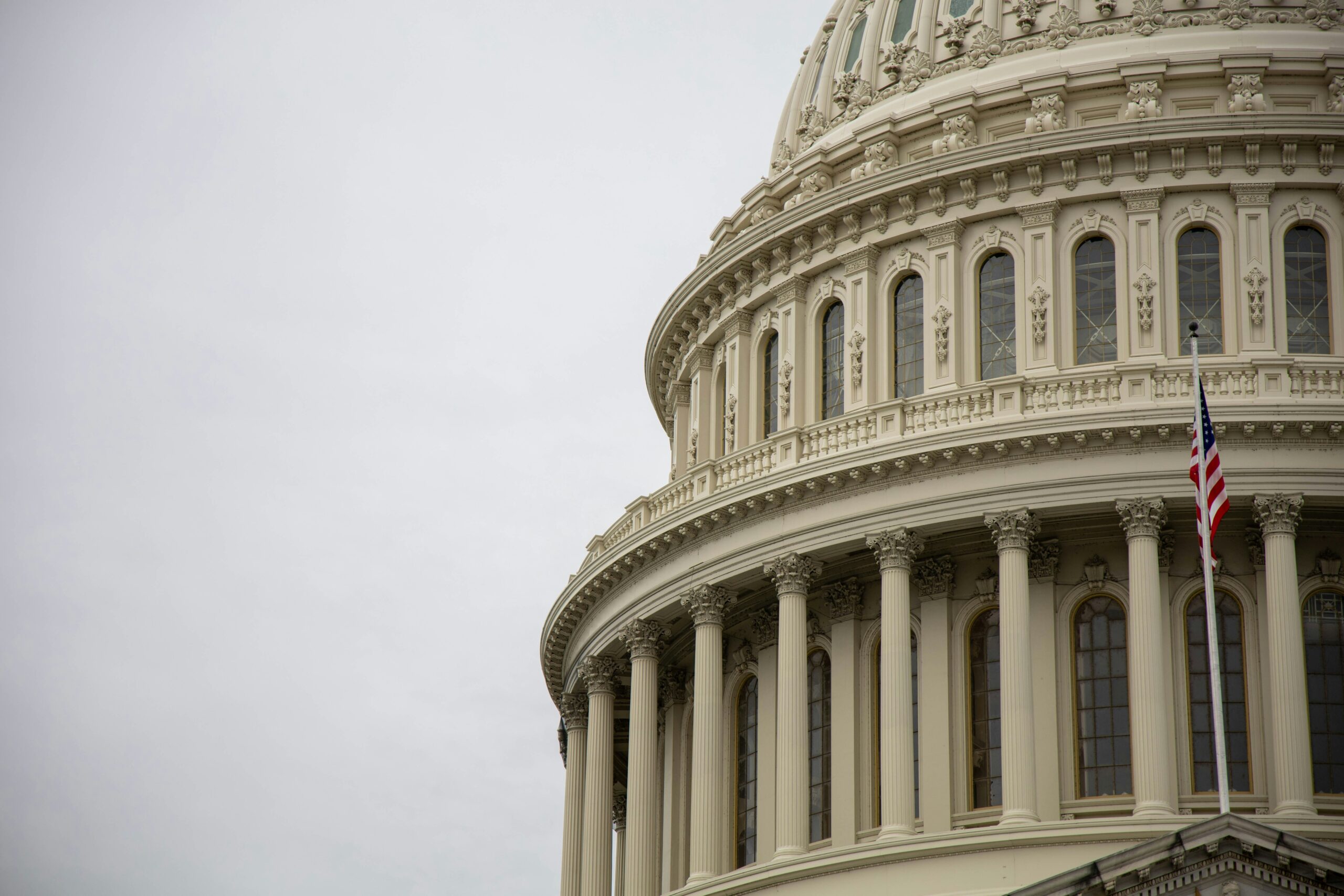Eight-Figure Outliers Aside, These Lateral Candidates Face a ‘Buyer’s Market’ in Big Law

By Abigail Adcox
Amid a flood of government attorneys hitting the lateral market, whether by choice or circumstance, law firms have their pick of lawyers with top public sector experience.
But as firms prepare for shifting demand under the new administration and long-term strategic planning, some lateral candidates from the government are having a tougher time getting placed.
The supply of candidates is also affecting negotiating power in lateral compensation and guaranteed pay. Some recruiters have even seen “slightly lower offers” for candidates coming from the government compared with offers in a traditional talent market.
Attorneys entering Big Law from the government oftentimes don’t have an immediate book of business. With the sheer number of government attorneys on the job market, concerns about business planning are intensified in some cases. Meanwhile, law firms are also assessing if they have the client demand in the pipeline to support certain government hires.
"There are all these terrific people on the market, and what we are hearing from firms is, ‘We'd love to be opportunistic and grab this person, but we don't have the business case for it.’ That's a refrain that I hear quite a bit. So they have a business case for some – but not all,'" said Lauren Drake, a D.C.-based recruiter at Macrae.
Law firms also hired extensively last year, in the waning months of the Biden administration, and many already have full benches in their white-collar defense and investigation practices.
At McDermott Will & Emery, the firm has already made hires from the government in the last year, including former federal prosecutor Sagar Ravi, who joined the firm last March, along with a seven-attorney white-collar litigation team from Orrick, Herrington & Sutcliffe.
Haley Lelah, global director of talent acquisition and integration for partners and counsel at McDermott, said the firm is receiving roughly two to four resumes a day on average from government attorneys across agencies, particularly from the Justice Department.
“We always want to make sure that we have the right balance of adding talent and then also just the right amount of volume of work,” said Lelah. “Certainly there are some folks that we're talking to right now that are can't-miss type candidates, and I think it's really hard, because I'm sure a lot of these candidates are really qualified and could add a lot of value. We just might not have the right work for them right now.”
Lelah added that the higher profile a government candidate is, the “easier” it may be to start their own book of business.
“Their kind of name can sell itself,” said Lelah. “Other folks will probably have a little bit more of a challenge of ramping up, so I think that is something that we’re accessing on a case-by-case basis.”
McDermott is “a very entrepreneurial place,” she added. “And so we are really looking for folks who, while we understand directly coming out of government, they're not going to have a book of business, but we do expect them over a ramp-up period of a few years to be the type of partners that will be building their own contacts and building their own book of business.”
Compensation Factors
Looking at the overall talent market, in light of market conditions, government candidates don’t have as much negotiating power in their compensation.
“It's definitely a buyer's market in most cases,” said Jeffrey Lowe, a D.C.-based recruiter at CenterPeak. “The people at the top of the food chain are doing very, very well, and will always do very well regardless of what the overall market is doing. As you move down the level of authority, I think it's been trickier for some this year than others.”
Lowe added that there are some people who are “seeing slightly lower offers than they might have in a traditional environment.”
Still, some recruiters say they aren’t seeing substantial changes in the compensation packages firms are offering, at least right now, although that could change in the coming months as many candidates are still in the early stages of their job hunt.
"We haven't seen firms tightening the purse strings yet," observed Dan Binstock, a D.C.-based recruiter at Garrison. "There's a lot of talent available, and they're making some tough strategic choices, but for the high-demand people they're still investing the way that they have invested in the past, especially coming off of a strong financial year."
Compensation for government attorneys entering Am Law 50 firms can range from $400,000 to over $4 million, with the bulk of them falling within the $600,000 to $2.5 million range, according to Drake at Macrae. There are outliers on either end; their practice area, their title in government and whether they worked at a law firm previously are all comp factors, Drake added.
On the high end, Drake said they are seeing “quite a few” attorneys with compensation in the $4 million to $6 million range, those being attorneys in areas of high demand with significant titles and reputations. There are also outliers in the eight-figure range.
However, despite market conditions, some recruiters are seeing more compensation guarantees, something that candidates are asking for. “The trend has been away from guarantees for the last several years. I'm actually seeing more guarantees now,” said Drake.
While the length of guaranteed compensation varies by candidate, one year is more common to see, Drake added.
The use of guaranteed compensation for laterals has typically depended on the economic performance of firms and their recruiting strategy, and it usually comes down to a firm's decision over an individual lateral rather than a broad, firm-wide mandate, as Law.com has previously reported.
Scope of Hiring
More government attorneys were also on the job market earlier last year than what has been observed in previous election years, which in turn could be impacting firms hiring capacities at the moment.
Law firms up and down the Am Law 100 all landed government hires in the last year. They include firms like King & Spalding; Milbank; Weil, Gotshal & Manges; Latham & Watkins; Akin Gump Strauss Hauer & Feld; Mayer Brown; and Skadden, Arps, Slate, Meagher & Flom.
Some of the most high-profile candidates who joined firms last year include Robert Hur, who served as special counsel at the Justice Department, at King & Spalding; Gurbir Grewal, former director of the SEC’s Enforcement Division, at Milbank; and Stuart Delery, former White House counsel for President Joe Biden, joining Gibson, Dunn & Crutcher.
A number of law firms are now being opportunistic in the government attorneys they are interviewing and hiring — attorneys who may not have otherwise been on the lateral market. However, firms are expressing some hesitation on the number of hires they can bring on, depending on whether there is a long-term business case to support those hires, according to several legal observers.
"We're seeing firms take advantage of the market and consider exceptional government attorneys opportunistically," said Amy Savage, a D.C.-based recruiter at Garrison.
However, firms are still being cautious about who they bring on their bench, taking their time sorting through the pile of resumes they are receiving from government candidates.
“The overwhelming number of candidates — they don't want to jump too quickly on any one candidate because there might be others right behind them that they might be more interested in,” Lowe said. “So many are actively looking at resumes, but I think are taking their time sorting through them.”
‘A Broader View’ For Candidates
For government attorneys who are not landing at the top of firms’ resume piles, some are expanding the scope of law firms where they apply.
"Some government attorneys who were focused on exploring the possibility of joining a firm in the Am Law 50 are now taking a broader view," said Savage.
However, not all firms may be in a financial position to make considerable investments in attorneys coming out of the government.
“The challenge is finding the right fit. Because firms that are not necessarily at the top of the market don't always have the scale and the scope and frankly, the money to make these investment hires,” said Drake.
Overall, the glut of government attorney candidates firms are seeing is unlikely to slow in the immediate future, which could further shake things up in the D.C. legal market and beyond.
Read the full post at law.com
© 2025 ALM Global, LLC, All Rights Reserved.
Additional Post




